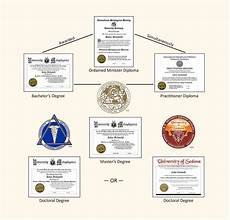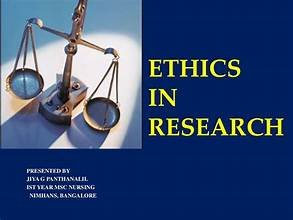The University of Metaphysical Sciences lawsuit has gained significant attention in recent times, as it highlights the complex relationship between educational institutions and the legal system. This article delves into the various aspects of the University of Metaphysical Sciences lawsuit, exploring its origins, the parties involved, the legal claims, and the broader implications for similar institutions and their students.
Table of Contents
Background of the University of Metaphysical Sciences Lawsuit
The University of Metaphysical Sciences lawsuit is rooted in a series of disputes that have unfolded in recent years. Founded with the goal of offering courses in metaphysical studies, the University of Metaphysical Sciences is a unique institution that attracts individuals interested in spiritual and alternative education. However, the legal challenges it faces have brought the spotlight on issues of accreditation, educational practices, and the rights of students enrolled in non-traditional academic settings.
Legal Claims in the University of Metaphysical Sciences Lawsuit
The University of Metaphysical Sciences lawsuit primarily revolves around claims made by former students and faculty regarding the institution’s practices. These claims include allegations of misleading advertising, lack of proper accreditation, and failure to fulfill promises made to students during enrollment. Many students have argued that the University misrepresented the value of its degrees and the potential career opportunities for graduates.
The Parties Involved in the University of Metaphysical Sciences Lawsuit

Several parties are involved in the University of Metaphysical Sciences lawsuit, with plaintiffs ranging from former students to faculty members. Students, particularly those who enrolled with high expectations of obtaining degrees that would help them in professional fields, have been vocal about their dissatisfaction with the educational experience. Faculty members, who claim to have been misled about the institution’s practices and policies, have also joined the lawsuit.
On the opposing side, the University of Metaphysical Sciences has defended itself by asserting that its programs are designed to provide valuable educational experiences, even though they may not align with traditional academic standards. The University argues that it has followed all relevant laws and regulations and that any issues faced by students stem from misunderstandings or unrealistic expectations.
Impact of the University of Metaphysical Sciences Lawsuit on Students
For many students, the University of Metaphysical Sciences lawsuit has raised serious concerns about their educational investments. Many have questioned the legitimacy of their degrees and the future of their careers. As the case continues to unfold, students are left wondering about the long-term effects of attending an institution that may not have met their educational expectations or provided the resources they were promised.
Some students have reported difficulty finding employment in fields related to their degree, despite the university’s claims of providing specialized training in metaphysical sciences. These issues are central to the University of Metaphysical Sciences lawsuit, with plaintiffs asserting that the school’s promotional materials were deceptive and misleading in regard to career outcomes.
Accreditations and Legal Regulations in the University of Metaphysical Sciences Lawsuit
One of the key issues in the University of Metaphysical Sciences lawsuit is the institution’s accreditation status. Many students claim that they were led to believe the University was fully accredited by recognized agencies, only to discover later that this was not the case. Accreditation is a vital component of any educational institution, as it signifies that the programs offered meet specific standards and that graduates are eligible for professional licensure and recognition in their chosen fields.
The lack of proper accreditation in the University of Metaphysical Sciences lawsuit has been a major point of contention, especially given that many students enrolled with the expectation that their degrees would be recognized by employers and other educational institutions. Without proper accreditation, graduates of the University may find it difficult to pursue further education or gain employment in their chosen field.
Ethical Considerations and the University of Metaphysical Sciences Lawsuit

The ethical implications of the University of Metaphysical Sciences lawsuit extend beyond legal claims and contractual disputes. As an institution that focuses on metaphysical studies, the University is expected to operate with a certain level of transparency, integrity, and accountability. However, many former students argue that the University failed to live up to these expectations, particularly in terms of providing accurate information and fulfilling its promises.
In the context of the University of Metaphysical Sciences lawsuit, ethical concerns revolve around the duty of educational institutions to provide a truthful representation of their programs and the potential outcomes for students. Misleading advertising and lack of clarity regarding program offerings and career prospects are central to the lawsuit’s ethical debate.
Future of the University of Metaphysical Sciences Lawsuit
As the University of Metaphysical Sciences lawsuit progresses through the courts, the outcome remains uncertain. Legal experts suggest that the case could set important precedents for other non-traditional educational institutions, particularly those offering unconventional programs or degrees in fields like metaphysical studies. The lawsuit could lead to stricter regulations and standards for these institutions, ensuring that students are better informed and protected in their educational pursuits.
For the University of Metaphysical Sciences, the outcome of the lawsuit will determine whether it can continue to operate as it has in the past or whether it will face significant legal and financial consequences. The University of Metaphysical Sciences lawsuit could result in changes to the institution’s policies, including more transparent advertising and clearer communication with prospective students.
Broader Implications of the University of Metaphysical Sciences Lawsuit
The University of Metaphysical Sciences lawsuit also raises broader questions about the regulation of alternative and non-traditional education. As more students turn to unconventional institutions for specialized learning, there is a growing need for comprehensive standards and protections to ensure that these schools provide legitimate and valuable educational experiences. The lawsuit highlights the potential risks that students face when enrolling in programs that do not meet traditional accreditation requirements or regulatory standards.
Moreover, the case could encourage other non-traditional schools to evaluate their practices and ensure that they are in compliance with relevant legal and ethical standards. The University of Metaphysical Sciences lawsuit may be a turning point for the regulation of metaphysical and spiritual education, leading to clearer guidelines for institutions offering such programs.
Also read showbizztoday.com showbizztoday: Your Ultimate Entertainment Hub
Conclusion: The University of Metaphysical Sciences Lawsuit and Its Legacy
The University of Metaphysical Sciences lawsuit represents a pivotal moment for non-traditional educational institutions, particularly those operating in niche areas like metaphysical studies. As the case continues, it will likely serve as a benchmark for future legal disputes involving alternative education providers. Students and educators alike will be closely watching the outcome, as it may influence how similar institutions operate and how they are held accountable to their students and the public.
Whether the lawsuit results in a victory for the plaintiffs or the University, it underscores the importance of transparency, accountability, and ethical behavior in education. For the University of Metaphysical Sciences, the outcome will shape its future and set a precedent for how educational institutions in this field should conduct themselves moving forward.


